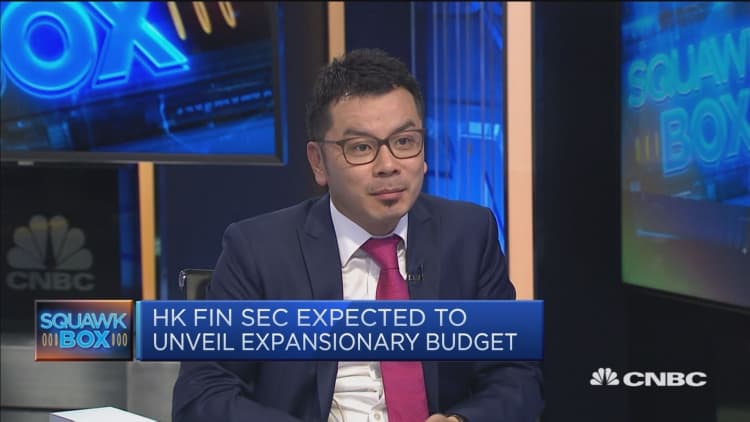Hong Kong is jumping on the global "smart city" bandwagon, but it's seen as having far to go to catch up with leading Asian competitors.
The metropolis of more than 7 million people exudes modernity with its neon skyline and bustling waterfront showcasing its history as a global trading hub. But when it comes to leveraging advances in digital information technology and data collection to improve connectivity, efficiency and the environment — key aims of smart cities — many judge it as lagging.
The local government in December promised a remedy, vowing to make Hong Kong a "world-class smart city" with aims of increasing quality of life and attractiveness for global business and investment.
Foreign businesses and investors support the smart city idea, but many say specifics are often lacking.
"Of course we cannot disagree with all this, it's great," Tom Uiterwaal, CEO of Hong Kong-based Reconergy and chairman of the Environment & Energy Business Council of the European Chamber of Commerce in Hong Kong, said Wednesday in a presentation on the environmental aspects of the plan.
"But it's not very concrete," said Uiterwaal. "It's very vague."

In a sign of the challenges Hong Kong faces in its ambitions, Sweden-based EasyPark ranked it 68th out of the top 100 cities surveyed in its 2017 Smart Cities Index, far behind No. 2 Singapore and No. 6 Tokyo. South Korea's Seoul was ranked 21st.
And while Hong Kong outranked mainland rivals Beijing and Shanghai, Chinese cities have been cited as having more aggressive smart city ambitions, often less encumbered by legal and bureaucratic restraints.
Formerly a British colony, Hong Kong's development was long boosted by its status as a free-trade bastion in a region beset by civil wars and communist takeovers after World War II.
Wi-Fi too slow
Hong Kong long served as a gateway to mainland China, but that role became less important as Beijing authorities pursued reforms and investment that propelled their country to become the world's second-largest economy.
A semi-autonomous region of China since British colonial rule ended in 1997, Hong Kong is now seeking a new edge.
"We have no time to waste," Chief Executive Carrie Lam said in a February speech on the smart city plan.
Hong Kong is not without advantages. Broadband penetration rates are high and the city's transportation and health care systems have been praised. But a lack of affordable housing and congestion are well-known problems.
Also, Hong Kong's Audit Commission this week said that download speeds at more than one-third of free public Wi-Fi hotspots at government locations were below official targets, while usage of the service was also low.

"The city faces challenges around liveability," Julian Vella, Asia Pacific regional head of consultancy KPMG's Global Infrastructure Advisory Practice, said in a report published in late January.
"Many of its younger people express frustration at the lack of opportunities," he said.
"Furthermore, many of its neighbors — both in mainland China and elsewhere across Asia — are moving ahead rapidly, and increasing the competitive landscape in the region."
As part of the report, KPMG commissioned YouGov to conduct an online survey late last year of residents and business executives on smart city attitudes in Hong Kong.
A particular area of concern for executives was the need for Hong Kong to foster more innovation, with 87 percent of those surveyed citing that as the biggest obstacle to achieving smart city status.
Also seen as worrying in the survey was the government's lengthy decision-making process, a sentiment echoed by Uiterwaal and others.
"Although Hong Kong is a relatively small city, things are sometimes overly complicated," he said.


